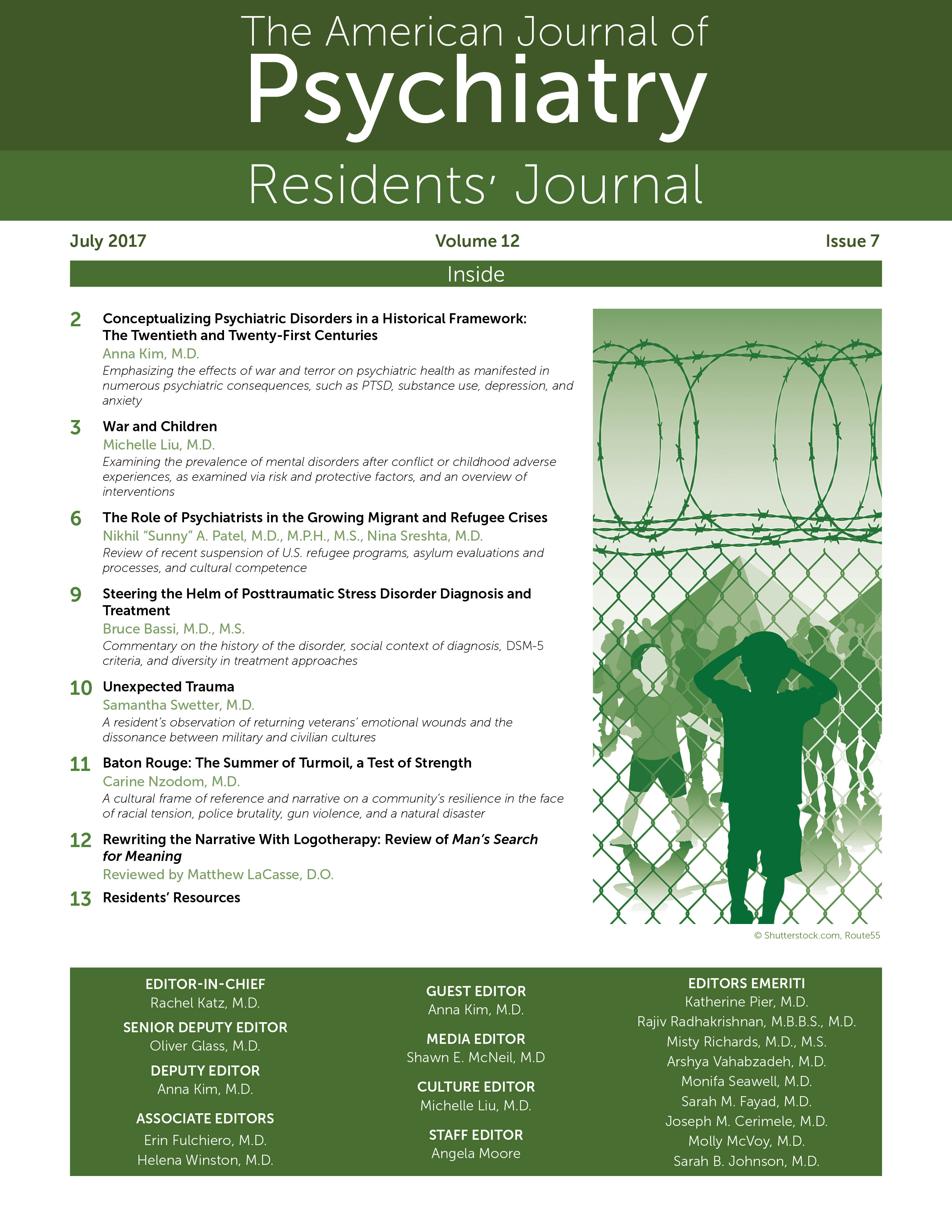Going to work at the VA, I expected trauma. I prepared myself to hear harrowing stories of combat, the type of which nightmares are made. What I found was far different. Instead of hearing trauma that fits perfectly into the
DSM-5 definition of posttraumatic stress disorder (
1), I found myself listening to patients tell traumatic stories of everyday occurrences. This made me think that perhaps in this population, my preconceived notion of binary trauma may not be helpful.
I wanted to understand this to be able to relate to my patients, so I went to someone with firsthand experience, my husband, who was deployed to Operation Iraqi Freedom as a private. I spoke to him about his service, his enrollment process, his training, and his deployment. Through his open reflection, I began to appreciate the profound gravity of signing a document that grants a disembodied entity control over your life. The strategic dismantling of your individuality through training, which starts with the multiday “processing.” He explained “processing” to be a dehumanizing assembly-line patrolled by drill sergeants. He described the omnipresent understanding that you were a private, the lowest level in your new social hierarchy, and how those who worked in “the process” often treated you with little civility. All of this to be handed your new identity, your only distinguishing characteristic: “dog tags.”
He talked about Basic Training, where small infractions of one recruit would spiral into group punishments, creating constant fear of retribution. The helplessness of joining a cohort of people dissimilar from you as a teenager—a forced culture. The pain of separating from your family and the anxiety of not knowing when you would be able to talk to them again. He spoke of the stress of rapid deployment. The heartbreak of seeing your family ties weaken and unravel in your absence. And most importantly, the survivor’s guilt, which makes your struggles pale in comparison to those with serious injuries or those who paid the ultimate sacrifice, leaving the implicit understanding that you need to “push through it,” with festering emotional wounds.
Then you come home, expecting happiness, but instead find the need to reintegrate into your distanced family and a foreign civilian culture. And once again, you are expected to “push through it,” with what is oftentimes little support. All of these microtraumas accumulating into the emotional weight of what it takes to become “an army of one.”
These are the stories I found reflected in my patients. My patients who were now coming to the VA in hopes someone can understand and help them. And while I will never understand the sincere sacrifice they made by signing those papers, I hope that I can at least acknowledge the impact of these nonbinary traumas and help my patients do more than just “push through.”
